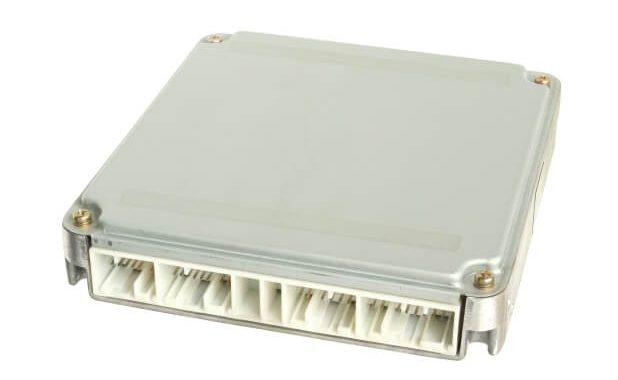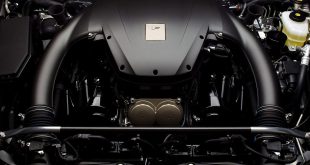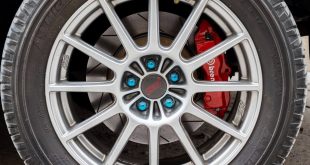Everyone with even a passing interest in cars has heard of chip tuning. As the story goes, a magical mechanical man turns up with his secret software, plugs it into your engine, and BOOM: Your car’s a lean, mean, street racing machine! Yes, in the best-case scenario, this is exactly what happens – done properly, an ECU remap can safely boost your car’s performance and even improve fuel efficiency (it’s usually one or the other, though).
However, as with anything software-related, there is an equal opportunity for an absolute nightmare if done badly, with poor performance, or even the potential for a total and utter engine failure. Put simply, if you don’t know what you are doing, you could be doing more harm than good here.
But what is ECU remapping, what exactly does it do for your vehicle, and is it actually worth it?
To answer these questions, we’ll start with a basic explanation of the concept, and discuss some of the risks and rewards of ECU chip tuning below.
Enjoy!
What is an ECU?
As cars have progressed, so have the technologies that manage them. In previous decades, cars were almost purely mechanical (with the exception of the starter motors, headlights, and so on), but today most of a modern production car’s functions are controlled by ECUs.
An ECU, or electronic control unit, is a ‘chip’ with software installed with default settings for those functions. A car might have up to 50 or more ECUs, which handle things like the driver interface, door locking systems, airbag systems, and so on.
However, the ECU we’re specifically talking about here is the Engine Control Unit which controls things like fuel flow, engine speed, variable valve timing, and so on.
What is ECU Remapping?
When a car rolls off the production line, its Engine Control Unit’s software is set to a default that works anywhere in the world, taking into account factors like different climates, road conditions, geographical conditions, varying fuel qualities, and so on.
While these default settings might be the best generic setting for your vehicle overall, they might not be the most efficient settings for your particular requirements. For example, if you want more performance, an ECU remap can change the air/fuel ratio and fuel flow to boost power, usually at a sacrifice of fuel efficiency. If you have replaced some other parts in favor of high-performance parts on your vehicle, like a performance exhaust, for example, you might also want to have your ECU tuned to fit the new mods. Any performance add-on will require a different ECU mapping to get the most out of it.
On the other hand, if your vehicle is a working vehicle such as a van, truck, or company fleet car that does a lot of miles, you might want to remap the ECU to boost fuel efficiency at a slight cost of performance.

What are the Rewards?
Well, as any gearhead would say, power is its own reward, and sure, if your Honda Civic suddenly shifts like hot shit off a shovel without any other modifications for a relatively inexpensive remap, then you’d think that was a pretty good deal. Also, if your car’s top speed is electronically limited, you can have that removed as well.
And for a workhorse, if you’re suddenly saving hundreds of dollars a year on fuel, an initial investment of a couple of hundred bucks is a wise move.
What are the Risks?
“Are tuning chips safe?” I can’t even count how many times I heard these questions in the last 15 years as a mechanic. Yes, they promise big rewards but they also bring significant risks, especially if you aren’t cautious.
The first thing you should keep in mind is that if a car’s top speed is limited, it’s usually for a very good reason – you don’t want to find out the hard way that your car suddenly turns into a kite over 155mph. Your car’s standard brakes, tires, and suspension are also matched to the car’s power output at production, and won’t be able to safely deal with any significant boost in power and speed. Again, you don’t want to find this out the hard way at high speeds.
The second main thing is that, as with any software, there are pirates. Any cowboy with a laptop and the right connections can lay his hands on the software and the right plugs for your car’s serial port, and turn up on your driveway promising big performance gains for peanuts, but his software might be outdated, hacked or cloned.
You wouldn’t let some guy from Craigslist promising big improvements on performance come and install a shady copy of OS X on your $2000 MacBook, would you? And yet this is what hundreds of people have done to their $20,000 cars each year.
In the case of a bad remap, the best-case scenario is that you notice strange, inconsistent behavior from your vehicle, and you end up having to take it to a reputable ECU Remapping center and paying to have it redone properly. A worse scenario is that the dodgy software damages your ECU, causing a total engine shutdown, and requiring you to fork out a couple of grand for a new ECU.
In the very worst case, the shady remap is entirely unsuitable for your powertrain, causing irreparable damage to your engine or transmission, and costing you many thousands of dollars.
How to Avoid the Risks
Predictably, the advice is: Steer clear of the cowboys. Go with reputable, well-established tuning companies with a track record. They might be more expensive, but this is for a reason – they use well-trained technicians, and their hardware and software are licensed and up-to-date.
Things you should also look out for are whether they are covered by insurance and if they offer a warranty, both of which should be a ‘yes’.
An initial investment of an extra couple of hundred dollars could save you thousands in the long run, so don’t take risks with your ride.
Frequently Asked Questions (FAQs)
Does chip tuning damage a car?
This answer depends on a lot of factors, including who does the job and how hardcore the tune is, but it’s pretty safe to say that it kinda does — but just like installing a turbocharger on a naturally-aspirated engine, increasing the boost from 8psi to 32 psi, or adding a nitrous oxide system also would. Basically, any important mod boosting the output of an engine, including chip tuning, will put significantly more stress on the various internal components, and naturally, causing them to wear quicker.
However, since most ECU remaps are rather mild and only push 10-20% more power, you should still get years of carefree driving — if it’s done right, I mean. Also, remaps from reputable companies tend to utilize the engine internals more efficiently and don’t hurt reliability as much.
Put simply, if you go for well-known manufacturers, stay away from the cheap Chinese stuff, and have your ECU tuned by a properly-trained technician, you should be good to go.
Is chip tuning safe?
Yes, chip tuning is safe if done correctly — it’s nothing more than reprogramming your ECU with new values, after all, to achieve a different goal than the manufacturer originally intended. Still, your ECU is just like any other computer and things could go wrong quite quickly if it’s not programmed right.
Hence, we highly recommend going for a reputable company with a proven track record. It’s also important to mention that, even in the best scenario, your engine will still probably be less reliable in the long run with a chip tuning. Let’s be honest here; there are not that many mods increasing reliability, in fact.
Does ECU tuning really work?
Absolutely! An ECU tuning can really boost power in modern engines, especially turbocharged ones.
How?
It’s important to remember that, when designing vehicles, car manufacturers have to adhere to strict sets of rules and achieve specific goals to ensure their new model is allowed to drive on public roads and attracts the right customers. For instance, when Toyota designs the next-generation Corolla, it’s definitely not trying to build a pocket rocket attracting young adults; it’s aiming at older customers who need a reliable commuter. As a result, their engine needs to be eco-friendly, reliable, fuel-efficient — you get the point.
To achieve that, the manufacturer simply doesn’t establish a fuel mapping sending as much fuel as possible all the time or implement a transmission gear changing logic promoting a quick 0-60 mph sprint. So, by playing with some of the parameters, it’s fairly simple to give a little more oomph to most vehicles.
Chip tuning in a nutshell right here!
What is the best Audi chip tuning?
This question is a bit tricky to answer since there’s a wide range of different chip tuning setups catering to different types of drivers and budgets and some manufacturers fair better than others depending on the intended end result. Still, some of the most well-regarded Audi chip tuning manufacturers are:
- APR
- GIAC
- REVO
- Unitronic
But of course, there are a ton of different options out there and new chip tuning manufacturers coming and going all the time. If you aren’t sure where to start, I would highly suggest giving your local speed shop a call — they’ll be able to suggest the right chip tuning option for your specific setup.
Is chip tuning worth it?
It always depends on the needs (and budget) of the customer. But generally, if you want a bit more power for quicker overtakes, chip tuning is an easy and rather cheap way to achieve that, especially compared to other much more expensive alternatives like forced induction and fuel system mods.
However, like most things when it comes to tuning, you usually get what you pay for. While simpler remaps are quite affordable, more extensive ones will definitely cost you. Still, when compared to the cost of installing a turbo on a N/A car, chip tuning is definitely worth — not mentioning that installing a snail on a car that didn’t have one from the factory will most probably require a chip tune to keep up with the new thresholds anyway.
Should I chip tune my car?
If you feel like your vehicle is underpowered and want to improve acceleration and responsiveness, chip tuning is definitely the way to go! It’s quite inexpensive, and more often than not, rather noninvasive — several manufacturers even offer “piggyback” plug-and-play options nowadays.
Moreover, chip tuning doesn’t require replacing any mechanical component — you’ll be out of the shop in a few hours max!
Get a safe performance tuning chip for your vehicle here!











Hi
I live in Thailand… but still have a question as I follow blogs etc.
I have a subaru forester 2.0i P
I can choose between ECU remapping and a plug and play solution.
My question is if I can do both… first the remap and add 20 HP and then the chip for another 20 HP or doesn’t it work that way???
Please advise,
regards
This likely would not work through just computer tuning. Both of the solutions you have described would yield similar result, without significant modifications to the car itself to yield the extra power.